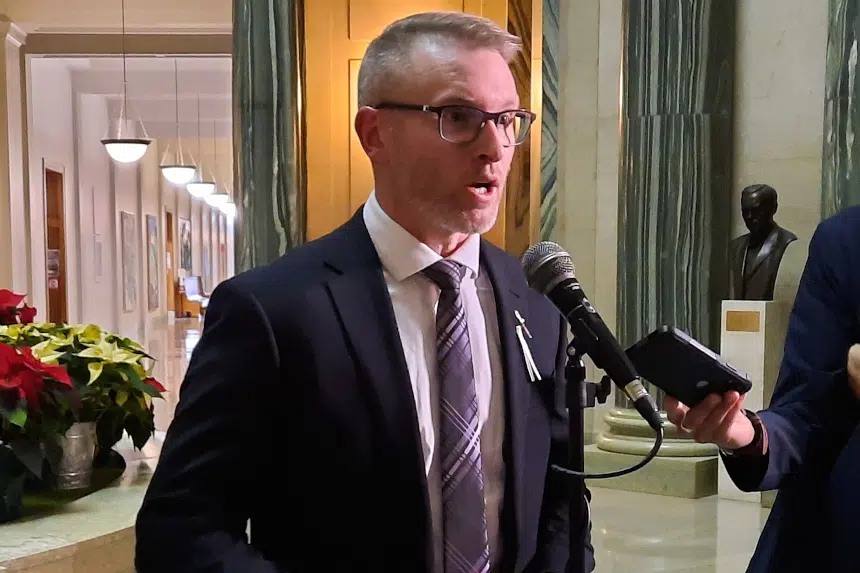Saskatchewan’s minister of rural and remote health feels health-care workers arriving from the Philippines will make an impact right away in the province, especially in remote communities.
On Thursday, the provincial government announced that four continuing care assistants have arrived and could begin working in Saskatchewan as early as the start of next month. Two of them will be stationed in Eastend, one in Moose Jaw and another in Swift Current.
The government reported other news regarding its recruitment process, including that 15 registered nurses from the Philippines are set to begin work in the province, 170 jobs have been offered to health-care workers from that country, and eight Ukrainian newcomers have been hired by the Saskatchewan Health Authority.
Later Thursday, Rural and Remote Health Minister Everett Hindley discussed what he considered to be good news for the province’s health-care system.
“It means that they’re able to fill some of those (vacant) shifts and provide additional care in these communities,” said Hindley.
“The same can be said elsewhere in Saskatchewan where we’re able to hire some of these new workers. Whether it might mean extended hours or greater access to health care, that’s ultimately what we’re trying to do.”
Hindley thinks that having those workers arrive will help enhance the health care in those rural communities.
While he feels more good news is on the way for the province as it attempts to add more workers to the system, not everyone has been pleased.
Last month, the Saskatchewan Union of Nurses (SUN) said it felt the province was celebrating too much about the numbers and not looking at the current situation.
According to SUN, the health-care system struggled over Christmas and staffing levels decreased.
Hindley responded to those comments.
“It’s a multi-pronged approach. And we know there’s needs right now and some of those are shorter-term solutions and some of them are longer term,” he said.
Hindley said some of those shorter-term solutions have been recruiting workers from the Philippians and others have been longer term, like the $5.5-million expansion of training seats to a number of different designations.
He thinks the government’s recruitment of health-care workers has still been successful.
“I think it is important to highlight the success we’re having. This is making an impact on a number of communities and health-care facilities in this province. I think it’s important to show there’s momentum,” Hindley stated.
“Whenever we have an opportunity to try and promote some of the new investments we’re making in health care, we do that. We try to get in front of health-care workers and make sure we leave no stone unturned as we try to fill some of those gaps and we’re going to continue to do that.
“We’re going to do everything we can to stabilize the health care right across this province and enhance the service people can expect.”
He noted the province is continuing to do everything it can to make sure the transition for those workers overseas is as seamless as possible.
The province set a goal in September to recruit more than 1,000 health-care workers to Saskatchewan over the next couple of years.







